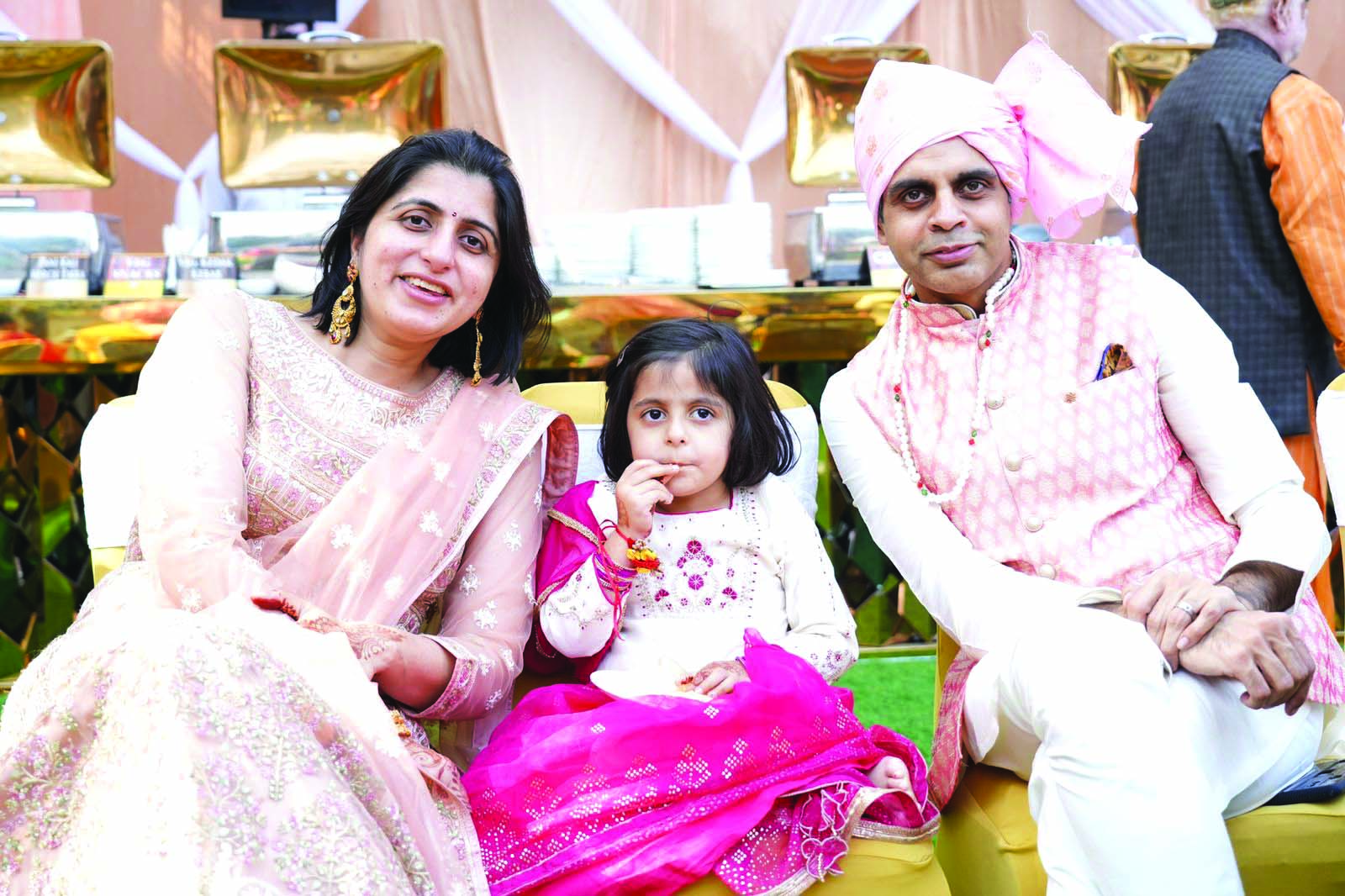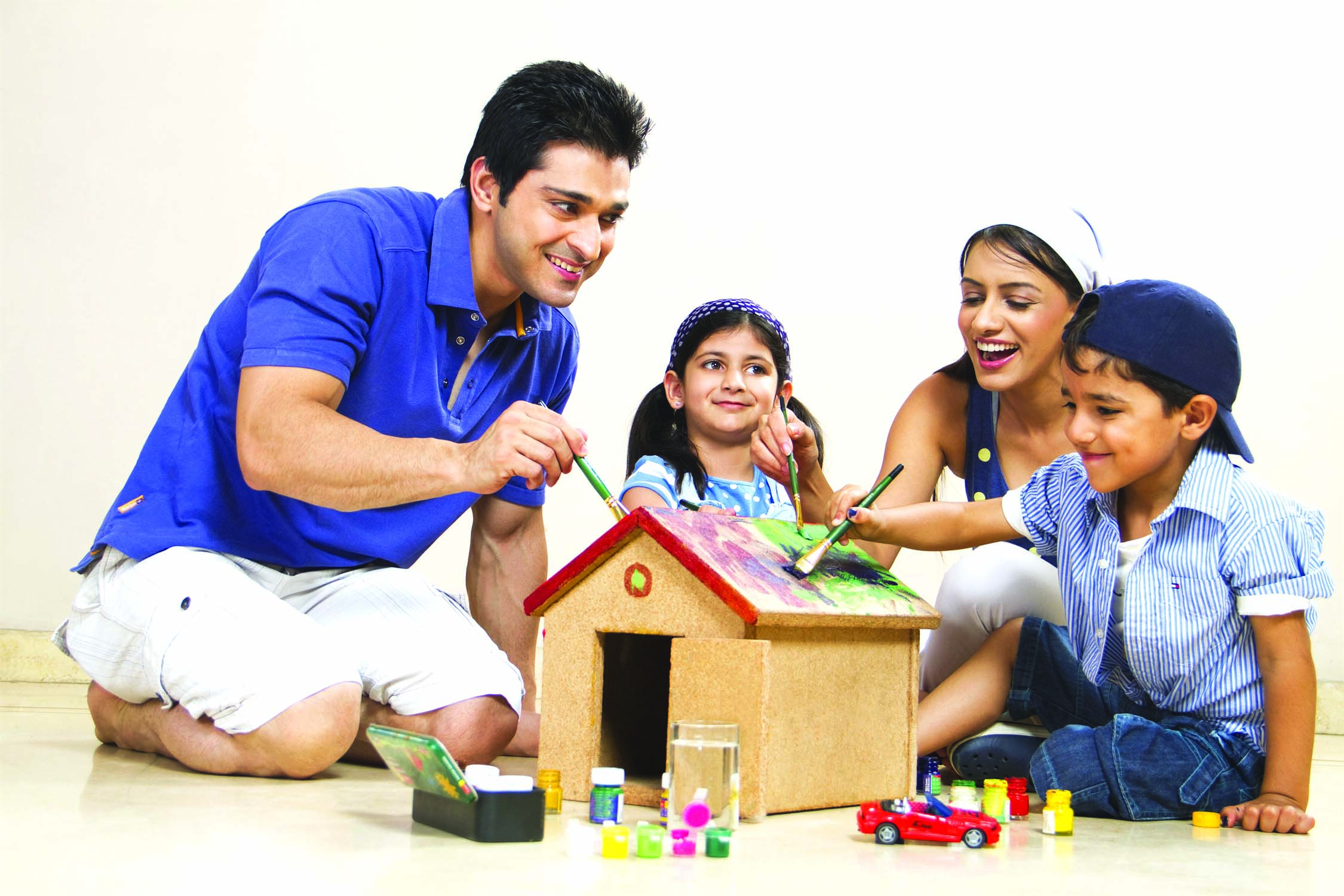Practising mindfulness is highly recommended to 21st century parents weighed down by the multifarious challenges of raising children in the age of ubiquitous social media, writes Aruna Raghuram

Mindfulness is more than a trendy buzzword in this age of high-stress lifestyles. It’s being increasingly acknowledged by scientists, psychologists and wellness experts as the prerequisite of mental and emotional well-being. Defined as the art of “maintaining a moment-by-moment awareness of our thoughts, feelings, bodily sensations, and surrounding environment, through a gentle, nurturing lens” (Prof. Jon Kabat-Zinn, University of Massachusetts Medical School), mindfulness is rapidly evolving into a popular form of meditation practised by a growing number of adults. In particular, practising mindfulness is highly recommended to 21st century parents weighed down by the multifarious challenges of raising children in the age of ubiquitous social media.
“Mindfulness is a state of mind: one of calmness, gratitude, and compassion. For instance when you resolve to accept whatever comes your way without passing judgement, it’s a mindful practice. While formal practices include focusing on regulating breathing and meditation, you can informally practise mindfulness in daily life. For example, you can eat, walk and cook mindfully. For parents in particular, practicing mindfulness has many benefits. It helps to slow and calm them, listen to and accept children’s opinions without judgement and most importantly reduces anxiety and stress,” says Subha Parthasarathy, a Bengaluru-based parents counsellor and trainer.
Indeed there’s no dearth of anecdotal and scientific evidence to support the beneficial correlation between mindfulness and positive parenting. A 2016 study on mindfulness and parenting, published in the Journal of Child and Family Studies, concluded that “increasing evidence supports the relevance of mindfulness in parenting”. The study which surveyed mothers of preschool children found a significant positive correlation between mindfulness and parenting and negative correlation between mindfulness and stress, depression and anxiety. Mindful parenting was strongly linked with reduced stress specific to the role of a mother, to parent-child interactions and perceptions about children.
Dr. Jon Kabat-Zinn, professor of medicine at the University of Massachusetts Medical Center, USA, and co-author (with his wife Myla Kabat-Zinn) of Everyday Blessings: The Inner Work of Mindful Parenting (1998), is a strong proponent of parents practising mindfulness to improve parent-child interaction and bonding. The key to mindful parenting, they write, is “acknowledging and supporting the sovereignty of children” which helps build “self-acceptance, self-esteem, self-confidence and trust in his/her own true nature”, in them.

Sindhuri Ananth, who works for a not-for-profit school in Bengaluru and is the mother of five-year-old Aadith, swears by the benefits of mindful parenting after completing a six-week online course of the University of California Los Angeles (UCLA) in daily mindfulness. “Practising mindfulness has helped to control my emotions and has calmed me down. It has prompted me to be more child-led in my parenting. Today, I make it a point to listen to my son and put his needs first. For instance, Aadith is an introvert and doesn’t socialise easily. Mindfulness has taught me to be patient with him. It has anchored me and given me perspective. I have also become more mindful of the language I use before Aadith and also about arguing with my husband when my son is around,” says Ananth.

Likewise Nitesh Batra, founder of The Mindful Initiative and Ashtanga Yoga Sadhna and Dr. Manaswini Bhalla, faculty member at IIM-Bangalore, parents of a five-year-old daughter, are believers in the transformative power of mindfulness. Nitesh says that practising mindfulness can do wonders for a parent-child relationship. “Practising mindfulness teaches parents to listen carefully to their child’s signals — verbal and non-verbal — and respond with care and consideration. When children see you being a mindful parent, they learn from example. This enhances a child’s connection with self and parents and vice versa,” says Nitesh. Adds Dr. Bhalla: “Mindful parenting is about listening, hearing and respecting your child — her opinions, observations and giving her personal space to grow and evolve.”
SOME REASONS WHY PRACTISING MINDFULNESS MAKES YOU A BETTER PARENT:


You ‘respond’ rather than ‘react’. When parents are mindful, they don’t instantly react to what their child says or does. Instead, they press the pause button and reflect before responding. “When a child throws tantrums, the usual response is to discipline her by yelling and threatening punishment. When discipline is enforced through fear, there is no learning for the child. On the other hand when parents are mindful, they ‘respond’ rather than ‘react’ to children’s recalcitrant behaviour. As parents learn to regulate their emotions and convey their message in a compassionate and constructive manner, children absorb the important life skill of mindfulness and anger management,” says Ririi Trivedi, an Ahmedabad-based regression therapist, trainer and life coach.
You avoid passing on your negative baggage to your child. According to Subha Parthasarathy (quoted earlier), most parenting behaviour is tainted by parents’ own experiences and perceptions, which is likely to be absorbed by impressionable children. “Mindful parenting helps parents become aware that their behaviour is impacting children. For instance, if a parent has had negative experiences in childhood, she may convey to her child the belief that the world is a very difficult place to live in. When we parent mindfully, we don’t try to influence our children with our beliefs and preconceptions. We allow them to develop their own viewpoints and opinions,” says Parthasarathy.
You become more empathetic. Mindfulness improves the quality of communication between parent and child. “If you are mindful and in the moment, you will be able to pick up your child’s subconscious cues. Parents who are distracted when they interact with children tend to overlook non-verbal communication such as tone of voice and body language,” says Ririi Trivedi who strongly recommends parents to formally practise mindfulness through meditation.
You help your child to process emotions. “You can teach the vocabulary of emotions to your child — how to identify emotions, where they are felt in the body, and how to process them,” adds Trivedi.

Better bonding with your child. Mindfulness helps parents focus on their children rather than be distracted by gadgets, office work or household chores. “Mindfulness makes parents more responsive to children. The more responsive we are, the more connected we become and the more connected we become, the richer the parent-child relationship. It also makes you a better role model,” says Parthasarathy.
You become accepting of yourself and your child. When you practice mindfulness, you become non-judgemental towards yourself and others. You stop feeling guilty about your perceived failures as a parent. You also stop comparing your child unfavourably with others.
You reduce anxiety and stress levels. Parent-child conflict is reduced, alleviating stress and anxiety.


























